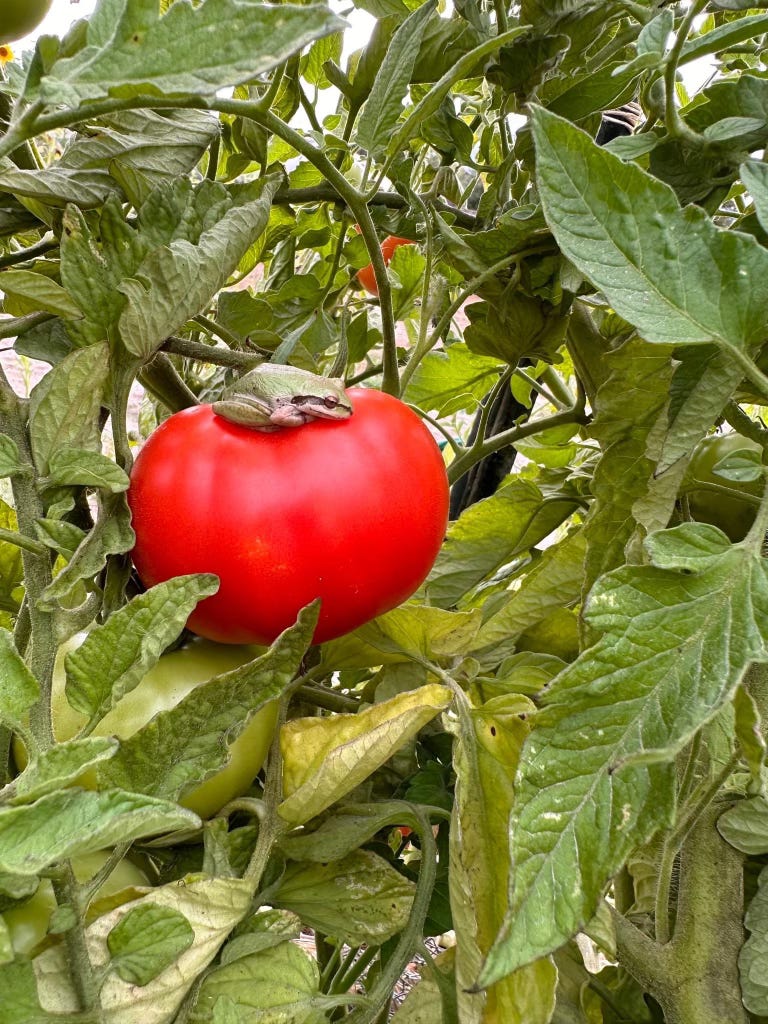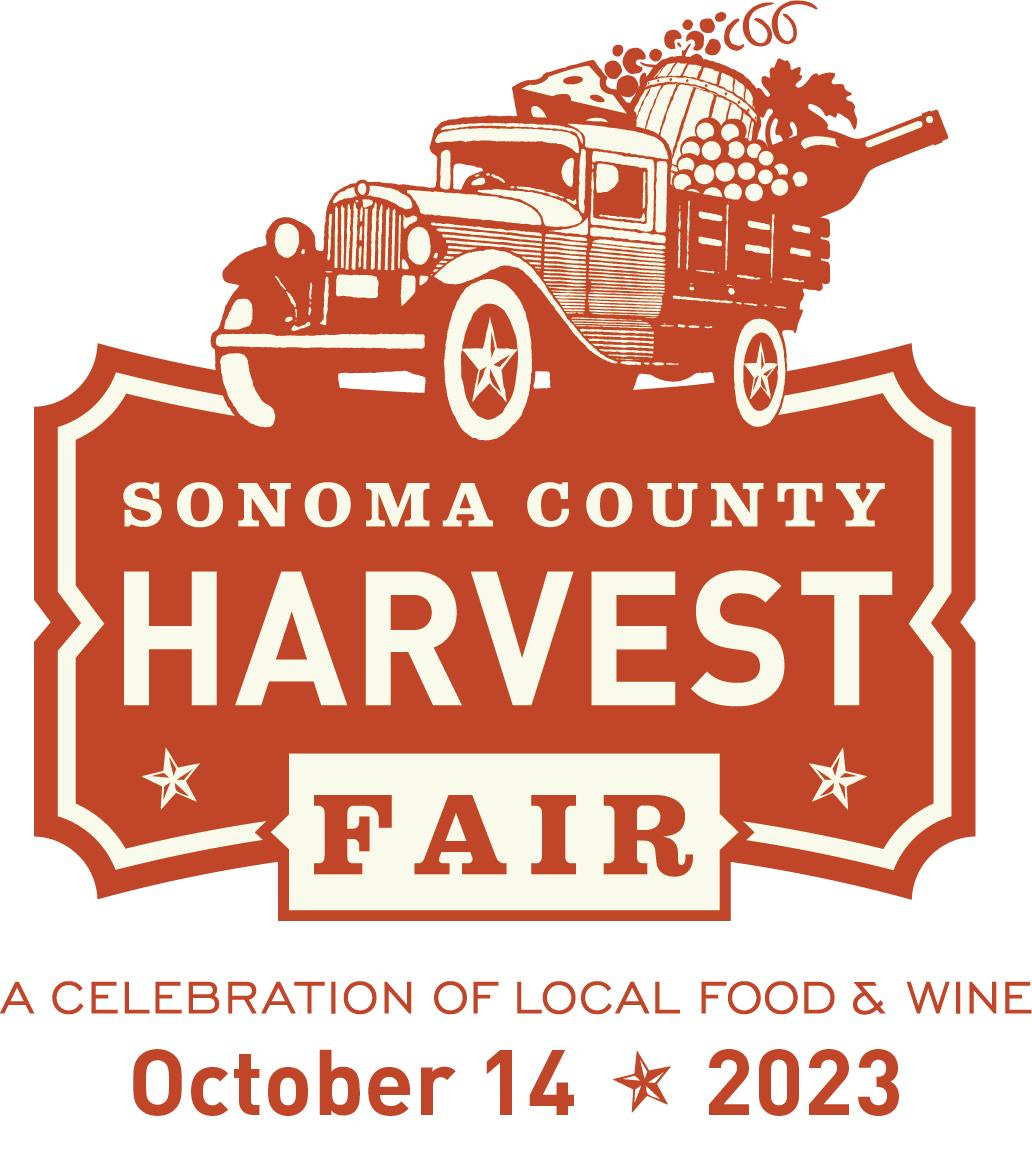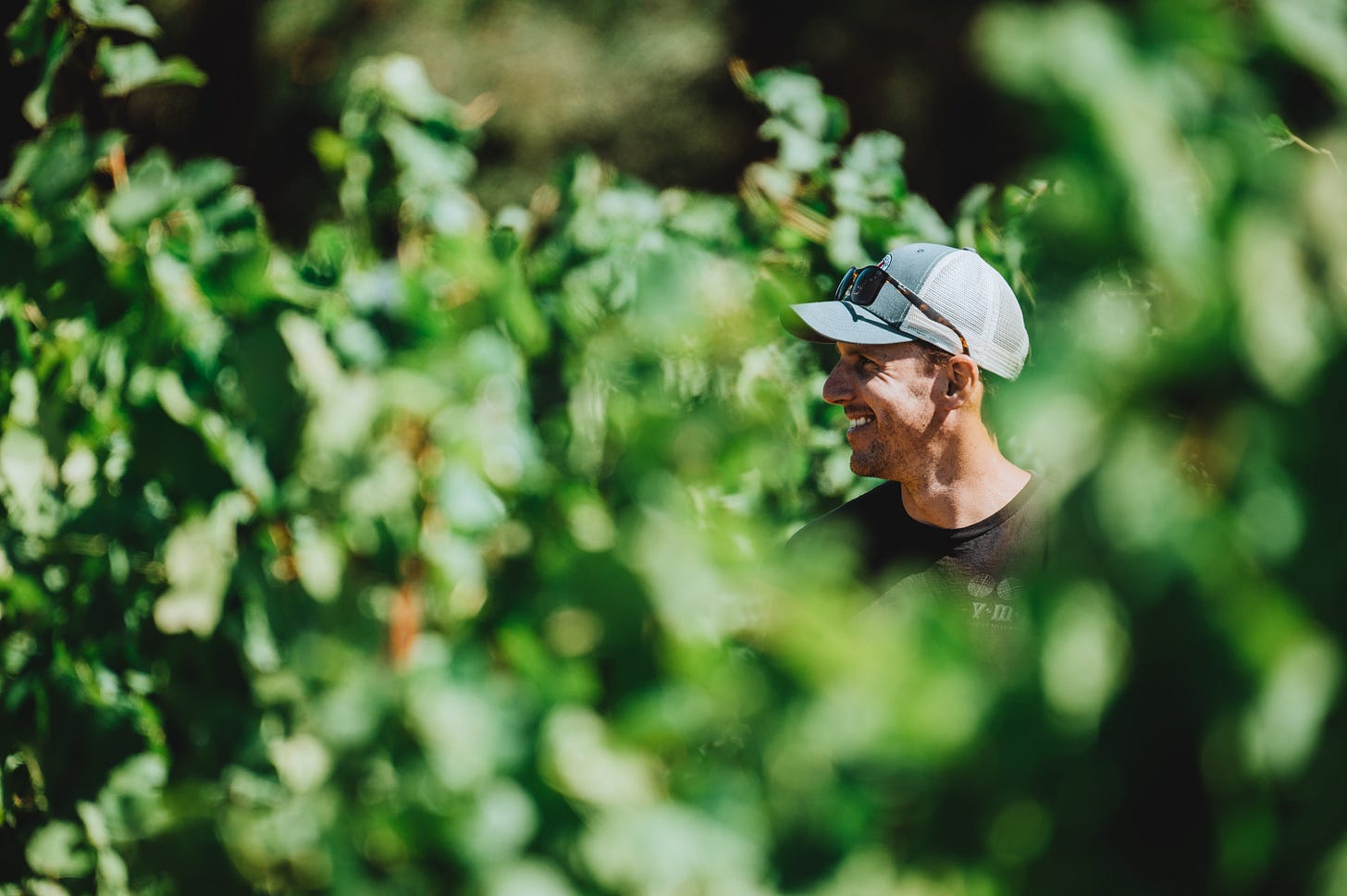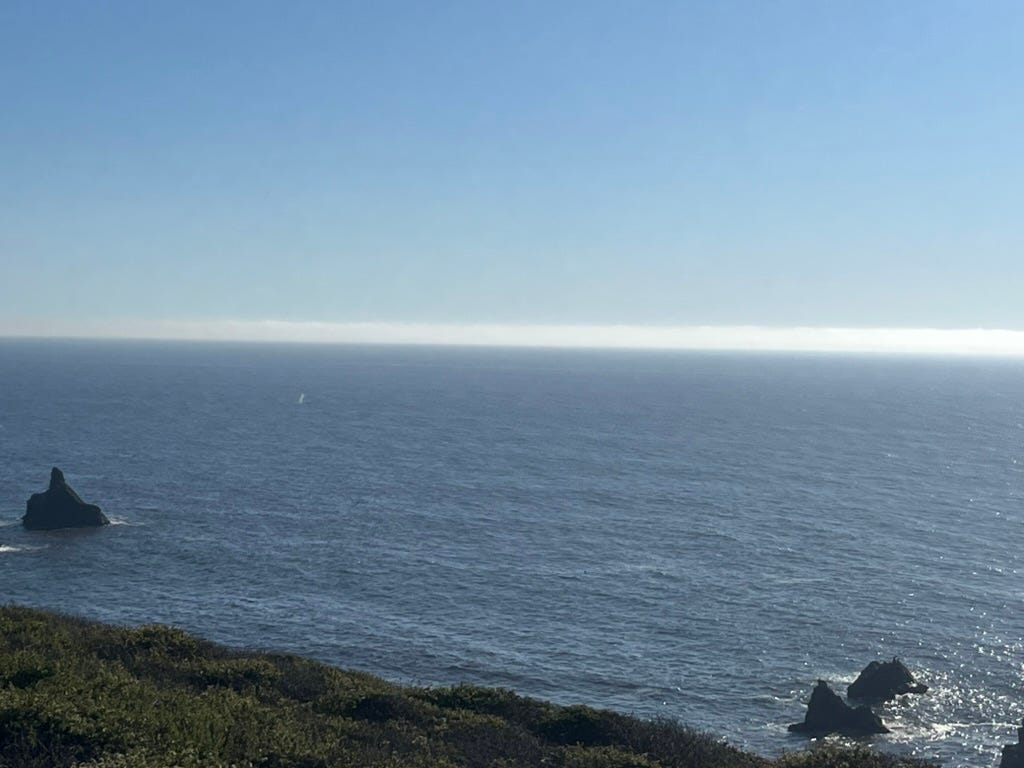Roundup: Hop on it
Local Harvest Fair Award Winners: Tilted Shed Ciderworks and Alex Kanzler of Kanzler Vineyards
Harvest Fair Awards
The Sonoma County Harvest Fair held its Awards Night last Sunday evening at the Sonoma County Fairgrounds, in advance of the fair on Saturday, October 14th. Started in 1975, the Harvest Fair seeks to promote locally produced agricultural products, especially wines grown in Sonoma County. Among the award winners that evening were three with Sebastopol connections.
Excellence in the Craft Beer, Cider, or Spirits
Scott Heath & Ellen Cavalli of Tilted Shed Ciderworks
Outstanding Young Farmer
Alex Kanzler of Kanzler Vineyards
Outstanding Young Person in Agribusiness
Jake Martini of Taft Street Winery
I interviewed Ellen and Alex below, both of whom were surprised to win these awards. Congratulations.
Ellen Cavalli of Tilted Shed Ciderworks
I interviewed Ellen Cavalli by email.
How does it feel for your team to be recognized with this award?
I was completely surprised we won, to be honest. When I opened the letter, at first, I thought it was a mistake! Sonoma County is brimming with excellent cideries, breweries, and distilleries, and to be selected for the award is a huge honor, to say the least! We're very grateful to the Sonoma County Harvest Fair for their vote of confidence in us. In addition to it being recognition for our hard work over the years, this is also a win for our Sonoma County apple farmers, from whom we source all of our apples, something we've done since we started in 2011.
Is cider gaining more recognition as a locally made product, like wine or beer?
Yes, I believe so! We've witnessed a sea change in the awareness of and appreciation for local cider here. One prime example: When we launched our inaugural ciders at the Gravenstein Apple Fair in August 2012, we were the only cidermaker there using 100% Sonoma County apples, and had to squeeze our way into the Wine Tent to pour our ciders. At this year's Gravenstein Apple Fair, there were 16 cider producers, all using local fruit, featured in the dedicated Craft Cider Tent, which was so massively popular, they ran out of most ciders by early afternoon.
I credit the growth in cider to a number of reasons: people looking for more options and wanting to support the local apple industry, and our efforts (among those of our colleagues) who are committed to elevating the apple to greatness through cider. But we also owe a lot to the advocacy of local ag organizations, including Sonoma County Farm Trails (disclosure: I am the Membership & Marketing Manager at Farm Trails), Slow Food, and now Sonoma County Harvest Fair.
You and your team seem comfortable in the company of winery and vineyard growers. How do you see the common connections?
We are comfortable in the company of wineries because we are a winery! We have a bonded wine permit through TTB and a Type 02 winery license through ABC. Cider is wine, after all. There is a common misconception that cider is more like beer, but cider almost couldn't be more different. It's not brewed; there is no heat involved. Cider, like wine, is simply fermented juice. While we use different equipment to press the apples, once it's juice, the fermentation process is exactly the same as white wine.
We have a lot of friends in the local wine community, and we often help each other out by sharing equipment and knowledge. We mostly align with the natural/low-intervention wine movement. We source from only local organic, no- to low-till, dry-farmed orchards, use native/wild yeasts, no fining or filtering, and minimal sulfites to allow the true the true character of the apples to shine through. We also coferment with local grapes—literally fermenting bunches of grapes on fresh-pressed apple juice, the best of both worlds!
Of course, there is a historical tension between grapes and apples because so many Sonoma County orchards have been plowed under and converted to vineyard over the decades. Even though that still happens, it's occurring less frequently. The trend is now for winemakers to incorporate apples into their programs, either doing their own apple/grape coferments or making their own ciders. And I think it's a great thing for both the local apple industry and for Sonoma County as a whole.
The shed is dead—long live the shed!
What brought you to Sebastopol? I presume you (and your husband) moved here and then had the idea of Tilted Shed.
On the contrary, we moved to Sebastopol for the apples and to start the cidery! Scott and I are originally from Alameda, in the East Bay. We've known each other since first grade and been together since we were 23. We've moved around a fair bit in our 27 years together: East Bay, New York City, New Mexico. It was while living in a small farming village in Northern New Mexico that we caught the cider bug after making cider from apples growing in our old orchard. We got obsessed with apples and cider and in fact initially planned to open a cidery in New Mexico. However, at the time, our son was very young, and we wanted him to grow up around family. So we decided to move back to Northern California, and set our sights on Sebastopol. We had always liked Sebastopol, it was an easy drive to visit family in the East Bay, and there were apples everywhere. It was a natural fit! We bought a small dilapidated farm on the outskirts of Sebastopol in August 2010—on the Gravenstein Highway no less!--and almost immediately began planting our small cider orchard. We did our first harvest in 2011, and released our first batch of ciders in 2012. And yes, there is, or rather was, a tilted shed on our farm. It collapsed last year. The shed is dead—long live the shed!
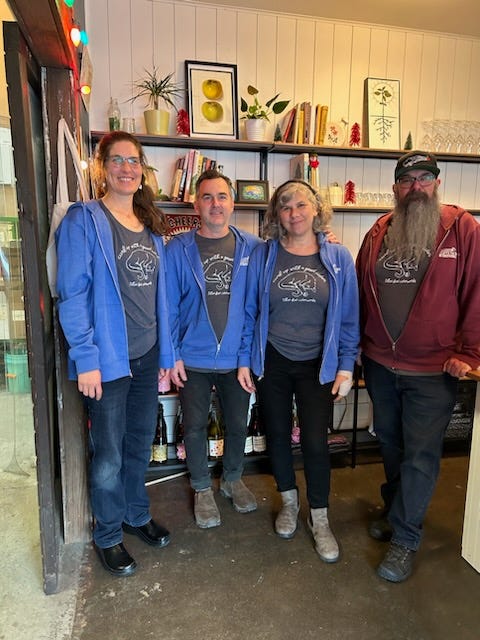
Tell me about Tilted Shed today? What are the different roles on your team?
It's a very small but mighty team! We have no investors and in fact, neither my husband nor I had any experience in the drinks market. I am a longtime book and magazine editor, though since 2019 I've worked for Farm Trails. My husband, Scott Heath, comes from the fine art world, and is a master printer of intaglio (etchings).
Scott and I are the co-owners. Scott is the cidermaker and orchardist but really, he does the work of at least four people, from working directly with all our local apple farmers, picking and hauling apples, doing all the pressing, handling all the fermentations, all the bottling and canning, packing up club shipments, doing deliveries, handling our accounting, helping me with the label designs, fixing the forklift, you name it.
I am the sales and marketing director, but I guess in a lot of ways you can sum up my role as being a cider evangelist. I don't see us as a "brand" and I don't want us to pursue growth at any cost. I feel we have a tremendous responsibility to do our best to champion Sonoma County apples and show people why they're worth saving. In addition to the daily tasks such as social media, working with Scott on our cider production and program, designing all the labels, and plotting out our course for sales and marketing, I do a lot of media and industry engagement. I do juggle a lot because I have a day job as well, and have always had to work outside the cidery, while being the primary caregiver for our son. But our son is now 16 and just got his license, so I no longer have to be his chauffeur!
We founded Tilted Shed in 2011, and for our first year, it was just the two of us doing everything by hand by ourselves, with our then 4-year-old son Benny "helping." In 2012, a mutual friend connected us with David Ridenhour, and he's been working with us ever since. He likes to call himself the "apple destroyer" because he runs the equipment that crushes all the apples, which you need to do before pressing them. He also does sales and deliveries, and manages and runs our tasting room. He's part of the family.
A more recent addition has been Dana Glei as our club coordinator. She started out as a customer who turned into a club member who became one of our biggest fans. She's also incredibly meticulous and organized, skills that are a must in her job as a research analyst. When I needed help coordinating our club, I immediately thought of her. She comes from an apple farming family in the Midwest, and has an abiding love for apples and cider, so it's a win-win.
What have you and your team had to learn to grow your business?
I think the most important thing Scott and I have learned is we don't need to "grow" our business in the conventional sense. I'll actually be speaking about this topic at the upcoming national cider conference, but the key to our success has been to stay small. The central conceit of late capitalism is that success is predicated on year-over-year growth, that you have to keep getting bigger, increasing production, distributing farther afield, taking on more debt, to be a profitable company. But I believe the best thing about Tilted Shed is its human scale. In our earlier years, we did think that we would have to boost production, get national distribution, and work the wholesale market to get in the black, but honestly it never worked out for us financially or otherwise. It wasn't until we discarded that fallacy, and instead focused on what we're good at and committed ourselves to connecting with our small but dedicated customer base, that things clicked. It's just the four of us, working directly with other small-scale local family farmers, making ciders we believe in, for our community. We know all our farmers by name, we make it a point to connect personally with our customers, we share our stories as real people, and we try to make our space as welcoming and inclusive as possible. That resonates in Sonoma County, and 12 years later, we're still here, as a solvent business, and making our best ciders yet!
Link: Tilted Shed Ciderworks
Alex Kanzler of Kanzler Vineyards
“It feels like summer arrived the first week of October this year,” said Alex Kanzler, when I reached him by phone. He was taking a short break from a busy week during harvest.
Alex said he felt humbled by the “young farmer” award and recognized that there are many farmers out there who have been doing this work — 10 hours a day, six days a week — for a lot longer than he has. He might consider himself a “first-generation” farmer in his family. “I was the first person in my family to own a pickup truck,” he said.
The Kanzler family moved to Sonoma County in 1994 when Alex was in first grade. He went to Apple Blossom, Twin Hills and Analy before heading to University of Colorado, Boulder to double major in History and Sociology. He never imagined that he might one day become a farmer and work in the wine industry or, for that matter, stay in Sebastopol after college. Alex had a “magical college experience” at Boulder where he also took up snowboarding. “I was into being an educator,” he said. After graduatiion, he was going to take a year off and then go back for his master’s degree in education.
During his year off, Alex found an internship at Landmark Winery. “I loved the work,” he told me. After that fall in Sonoma County, he went to work the harvest in New Zealand and then in Oregon, gaining practical experience. Eventually, he moved back home and began working on his family’s vineyard.
Alex’s dad, Steve, took the advice of neighbor Perry Koslowski and planted a vineyard in 1996 on the 20-acre property in the hills west of Sebastopol. The vineyard replaced a decrepit apple orchard. Alex said that his parents considered themselves “accidental farmers” who had other careers before moving to Sebastopol but loved wine. “They’re New Yorkers,” he said of them, although his father was from Ohio originally. For years, they had produced two wines without employees. His mother, Linda, did the bookkeeping and many of the odd jobs in the early days.
Alex became the winemaker in 2011 and he also began managing the vineyard. “It is a bit unusual to manage the whole operation,” he said. “Larger wineries in most of California have a vineyard manager who oversees the process from pruning to picking and then the winemaker takes over the production of wine.“ He enjoys being involved in the entire process “from grape to glass.”
Alex was very surprised by the award. “I feel under-qualified as a farmer,” he said. “I have such reverence for farmers and all that they do.” Alex lives in Sebastopol with his wife, Breauna Cooper, who also works at the winery.
Jacob Seichrist, Sommelier
In his twenties, Jacob Seichrist, the Wine Club Manager for Sonoma Wine Club and La Bodega, passed his WSET Level 2 Sommelier Exam with Distinction. Congratulations, Jacob.
Check out Maker Faire Bay Area
With my other hat on, I produce Maker Faire Bay Area, which is making a comeback of sorts after Covid. For years down in San Mateo, this new edition will be on the historic waterfront at Mare Island in Vallejo for two weekends, October 13-15 and 20-22. It will be an amazing show with hundreds of makers, art from Burning Man, robots, a pedal-powered music stage, light-up fashion, drones, 3D printers, crafters, cosplayers and prop makers, plastics recycling machines, electronics and more. In short, Maker Faire exhibits all kinds of creative work in a fun, informal setting where you can learn what people do, how they do it and why. It is one of those things where you just have to be there to appreciate it. It’s also great for kids.
Among the projects from Sebastopol makers are
Dickinson Glass Studio
Trashlantis and Robert van de Walle (see this story on the kinetic bike sculpture)
Steamboat Ed Haas and other Sebastopol Makers
“Mrs. Art”, Sally Briggs (1949-2023)
Sally Briggs passed away on September 15 after a hard-fought struggle with cancer. Her obituary can be found here on Legacy.com along with many tributes. Here is a paragraph from her obituary:
From 1983 until her illness sadly forced her to discontinue teaching in 2022, Sally taught art in Sonoma County. Following art teaching stints at the Richard Crane Elementary School in Rohnert Park, and at Casa Grande High School in Petaluma, Sally began her long art teaching career in Sebastopol, where she was known by generations of students as Mrs. Art. Sally enjoyed periods as roving art teacher to Park Side Elementary, Brook Haven School, and the former Pine Crest Elementary School, taught for 12 years at Analy High School during which two of her many successes was her creation a photography program and the introduction of the Empty Bowls Program to Sonoma County. After retiring from Analy as Art Department Chair, Sally taught art at the Apple Blossom Elementary School for several more years. …
She found the artist, and magic, in every child (and grown up) she met. Her energy was infectious, and she will always be remembered for her energy, her wild blond hair, her vibrant smile, and her passion.
A celebration of her life was held this past week at the Sebastopol Center for the Arts. The family has also established the Sally Briggs Art Education Scholarship, for which checks (made out to Analy High School) can be sent indicating this purpose c/o Brigitte Deleon, Analy High School, 6950 Analy Avenue, Sebastopol, CA 95472.
Whales!
I was in the checkout line at Andy’s and a woman in the next line was so excited. She’d been out to the coast and saw about 80 whales — she’d never seen so many in the area around Goat Rock State Beach. The checkout clerk suggested with a broad laugh that Andy’s should close up so that everyone could go out to see the whales. Not a bad idea, I thought.
Andy’s didn’t close but the report of whales made me curious, so I drove out there, going along the coast from Bodega Bay towards Goat Rock State Beach. As I got closer to Goat Rock, I could see the whale spouts in the distance. There were many different pods of whales along the coast and I overheard someone say that they’d been in the area for several days.
To be honest, some might find the sight a bit underwhelming but I find it thrilling to spot the whales and verify that these incredible creatures are actually out there.
The Week of October 1-7
Ken Berman's Industrial Whimsy
Sebastopol artist Ken Berman’s painting, “Temporary Restraining Order,” was selected for a new juried Open ‘23 show at SF's de Young Museum, which is open now and runs through the January 7th. Berman is a bit of an outlier among Sonoma County artists; he doesn’t do lan…
The Road to 'Authenticity'
Local author and longtime Sebastopol resident Adam Bulbulia recently published his third book, “Authenticity: The …


